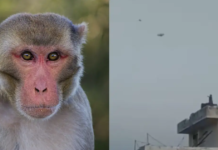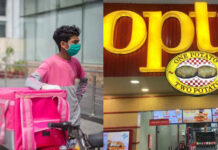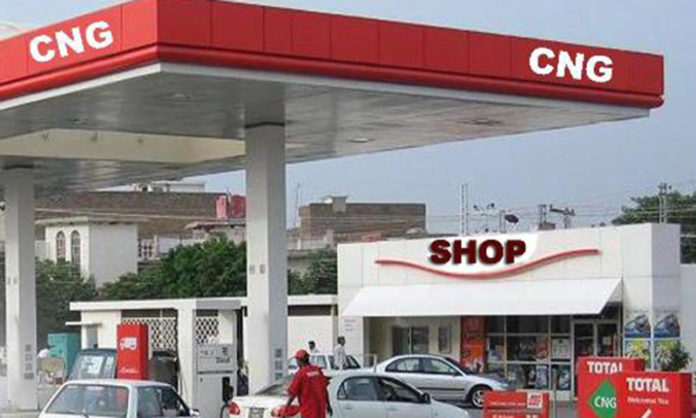The closure of CNG stations for a longer duration has proved to be a great burden on the pockets of consumers as rickshaw and taxi drivers are demanding exorbitant fares while peak factor on ride-hailing services has remained a constant irritant owing to lack of public transport.
The current week also saw a huge rush of people at bus stops waiting for public transport vehicles as buses were taking too long to reach their designated stops because of being a few in numbers.
A number of transporters had also parked their vehicles in parking areas owing to non-availability of gas.
Most public transport buses use CNG instead of diesel.
Due to prolonged gas loadshedding, people are facing a great deal of problems in finding seats in three wheeler rickshaws, usually called qingqi.
Some qingqi operators are seen demanding Rs25-30 instead of the actual fare of Rs20 for a ride.
Due to non-availability of public transport, peak factors on ride-hailing services (two, three and four wheelers) have also severely hit cash-strapped consumers.
‘Business environment in the CNG sector is now turning hostile because of gas price hike’
Due to the peak factor, the fare of ride-hailing services becomes more expensive than the fares being charged by private rickshaws.
For a distance of 12km, rickshaw owners, after a long bargain, demand Rs350-450 while rickshaws and cars of Uber and Careem charge around Rs600-800 during the peak factor.
Private CNG rickshaw owners have placed a 1.5 litre bottle of petrol to show customers that they are using petrol, which justifies high transportation charges.
CNG business becoming ‘non-profitable’
“We will block the main roads in case gas supply to stations is closed for more than three days next week against the schedule of SSGCL,” Chairman of CNG Dealers Association Abdul Sami Khan said.
He said CNG sales were badly hit in the current week due to longer duration of station closures coupled with switching over of consumers to petrol.
“We have been encouraged by previous governments to invest in CNG sector for ensuring clean environment and curbing oil import bill, but the business environment is now turning hostile,” he added.
On reports of gas tariff hike by up to 221 per cent from January 2020, Sami Khan said, adviser to prime minister on petroleum products Nadeem Babar assured him on Saturday morning that “decision on gas increase will be made by mid January 2020”.
He said that he had received a message from the PM’s adviser, which said: “there is no increase. OGRA has recommended it. But the government is still considering it. Decision will be made in mid January”.
The SSGCL has been undertaking loadshedding due to low pressure of gas in the system. As a result, domestic consumers as well as industrial units are facing serious problems of low gas pressure.
Low gas pressure
The coordinator Sindh, All Pakistan CNG Association, Samir Najmul Hassan claimed that gas supply to CNG stations had remained shut for over 141 hours in the current week, thus hitting the daily sale and causing problems to the people.
He said CNG stations were not getting required pressure even when the gas was restored.
He added that in normal days, 90 per cent pumps get 8psi and 10 per cent pumps get 15psi but the pressure remained in the range of 2psi to 4psi at pumps which used to get 8psi. Due to low pressure, some 40 per cent pumps could not open their gas stations.
He said over the past one and a half years, CNG price had risen to Rs123 per kg from Rs87 per kg, causing 30 per cent decline in sales.
Even on the closure of CNG pumps, domestic consumers and industries in SITE were getting low pressure.
He said there should be no gas loadshedding as CNG stations in Sindh consumed only 62mmcfd of gas out of total 1,285mmcfd gas consumption. He said in case CNG rates were increased as per OGRA proposal — consumers would pay Rs144 per kg as compared to current rate of Rs123 per kg.
“The government cannot afford three billion dollars for importing additional petrol per year in case CNG is closed in the country,” he said.
Concern over proposed hike in gas price
The president of Korangi Association of Trade and Industry (KATI), Sheikh Umer Rehan, has expressed deep concern over proposed hike in gas prices by Ogra and termed any such decision a blow to industries.
He said that already industries were facing troubled times due to higher production cost and higher tariffs of energy.
In current situation, industry could not afford any increase in utility prices due to already shooting production cost which had adversely affected exports.
He was of view that gas price increase for industry, captive plants and CNG sector would widely affect the industry and the common people as well.
He added that with increased gas prices captive power plants would not remain feasible and this would lead to interruption in industrial production and especially pharmaceutical sector where any disruption can cause challenges for public health.
He added that increase in gas prices for domestic user and roti tandoors would directly affect the general public.
He urged Prime Minister Imran Khan to consider the apprehensions of industry and people of Pakistan and drop any such consideration of gas price hike.






























